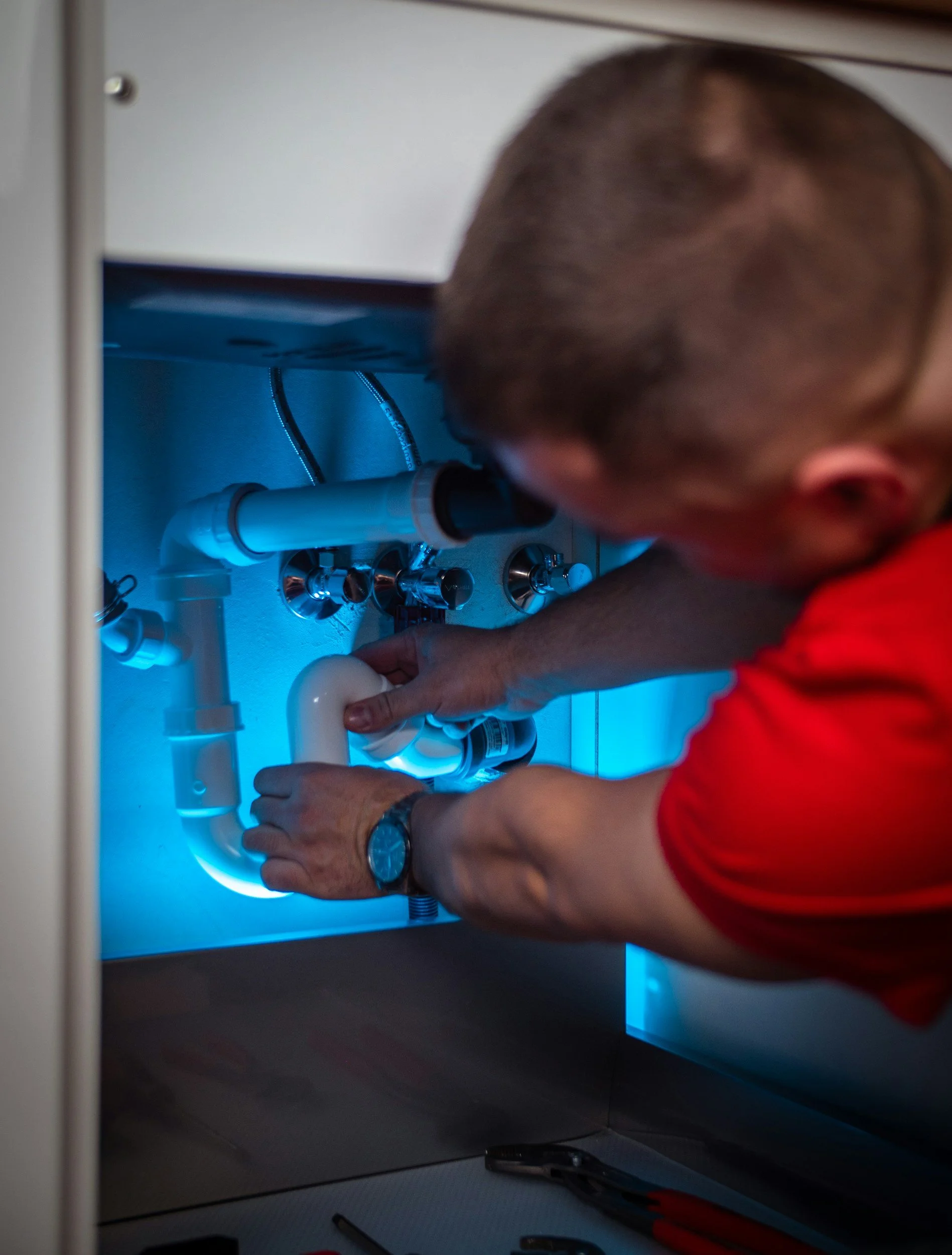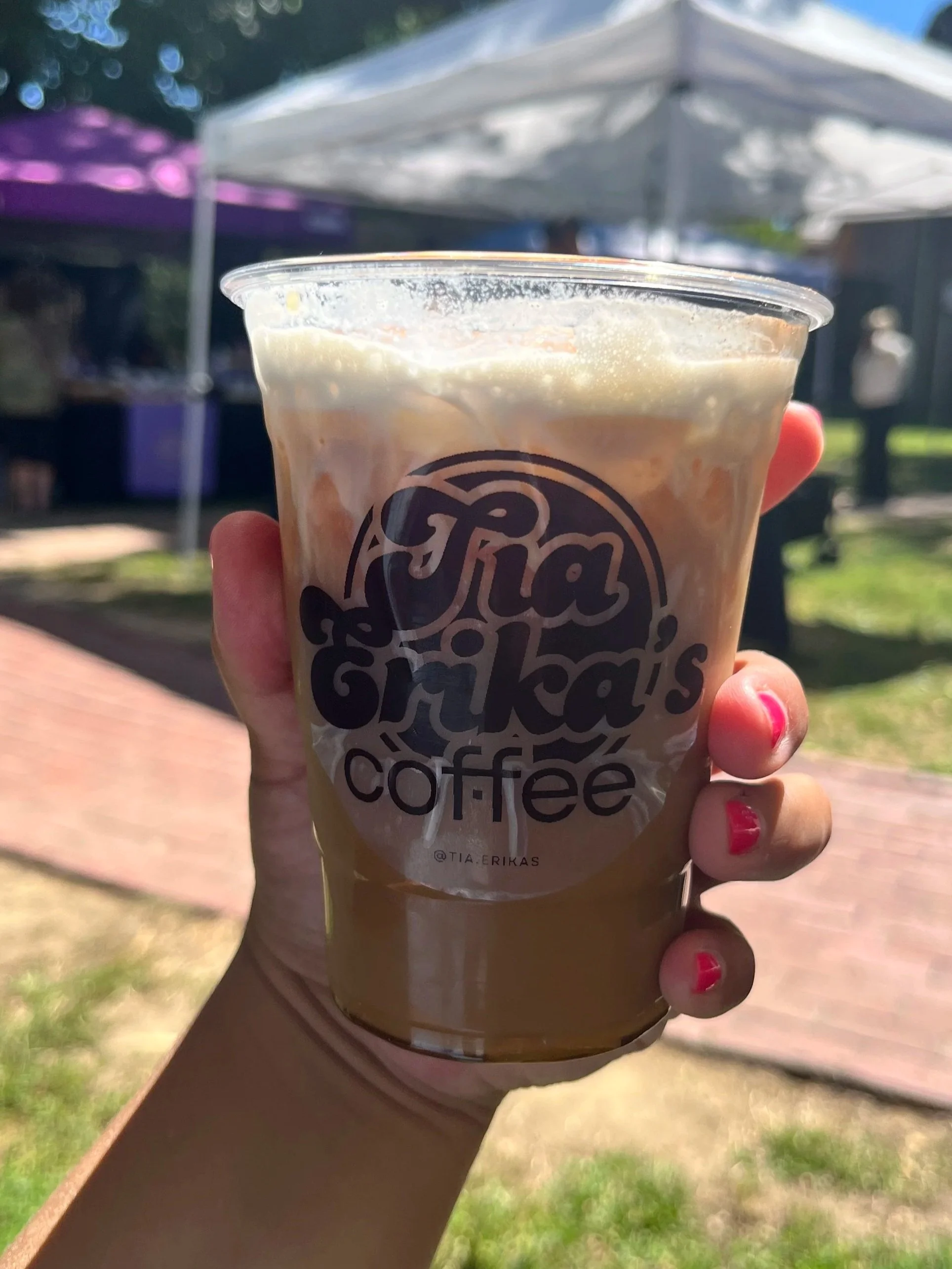🛠️ The Inspection Struggle is Over: 5 Essential Lessons for Your Coffee Trailer Launch
The last few weeks have been a whirlwind of stress, excitement, and more paperwork than I ever thought possible. If you’ve been following our journey, you know the final health and safety inspection was the last major hurdle before we could officially launch Tia Erika's Coffee Trailer.
We passed! But let me tell you, it was a battle. Getting a food service trailer certified is not the same as getting a business license—it’s a deep dive into plumbing, electrical, and commercial kitchen standards.
Here are the five most essential lessons we learned, from the plumbing system to the contractor, to ensure you can pass inspection and operate safely from day one.
1. The Right Contractor is Non-Negotiable (The Hardest Lesson)
Building out a food truck or coffee trailer is not the same as a residential home project. It requires specialized knowledge of commercial equipment, mobile plumbing, and unique health department codes.
Our Mistake: We initially hired a general contractor who was great at home renovations but struggled with the mobile commercial setup. It caused delays, failed pressure tests, and costly rework.
The Must-Have: Find a contractor or handyman who has verified experience building out food service trailers or trucks. They understand the difference between standard house plumbing and the specific, approved commercial fixtures and tank requirements needed for a mobile unit. This expertise is worth every penny and will save you weeks of stress and thousands in re-dos.
2. The Integrated Water System (Sinks, Tanks, and Hot Water)
The entire water system is the single biggest point of failure during inspection. It must function as one cohesive, self-contained, commercial unit.
Sinks: You must have a commercial three-compartment sink (for washing, rinsing, and sanitizing) and a separate handwashing sink. Do not use residential grade materials.
Water Heater: You need a water heater that can reliably and quickly reach the minimum required temperature (often 110∘F for the hand sink and 120∘F for the three-compartment sink). Since space is tight, many operators use commercial tankless heaters.
Tanks: Install separate tanks for potable (fresh) water and non-potable (gray) water. Most health departments require the gray water tank to be 15% larger than the fresh water tank to prevent accidental overflow.
If one component of this system fails the inspection, the entire trailer is put on hold.
3. NSF-Certified Equipment Only (No Home Appliances)
This lesson is simple but expensive: commercial operations require commercial equipment.
The Must-Have: Every piece of kitchen equipment that touches food or beverage—from your espresso machine to your refrigerators—needs to be National Sanitation Foundation (NSF) certified. NSF certification means the equipment is easy to clean, non-toxic, and meets rigorous public health standards. Inspectors will look for the NSF stamp. Trying to save money with residential equipment will result in a failed inspection and having to replace the items anyway.
4. Right-Sizing Your Generator (Don't Buy Twice)
After passing inspection, the next battle is ensuring you have the power to run everything simultaneously.
Our Mistake: We bought a generator we thought was big enough, but when the espresso machine, refrigerator, and water heater all kicked on at once, the circuit tripped every time. We had to return the first unit and buy a whole new commercial-grade generator to make the trailer functional. That was an unnecessary cost and time loss.
The Must-Have: Know the total starting wattage (surge) required when all your appliances kick on, not just the running wattage. Consult an electrician to confirm you purchase a single, quality commercial generator with enough power to handle the spike. This ensures you only buy once and have reliable, uninterrupted power during service.
5. Mastering the Haul (The Rig and the Road)
While these aren't inspection items, they are crucial for operating a safe and successful mobile business. Your business doesn't make a dime if you can't get the trailer to the location.
Tow Capacity Costs: Confirm your tow vehicle's capacity meets or exceeds the fully loaded weight of your trailer. We learned this the hard way: we had to sell our existing personal car and buy a new Jeep Wrangler just to handle the weight safely.
Towing Stability: Even after getting the Jeep, we added an air lift kit to the rear suspension. An air lift kit uses adjustable air bags to level the vehicle and trailer when towing a heavy load, dramatically improving stability and safety on the road.
Hitch and Setup: Practice hitching and unhitching until you can do it quickly and safely. You'll need a proper trailer jack (also called a tongue jack, similar to a car jack for a tire) to raise and lower the trailer tongue for level parking and attaching to the hitch. You also need to know how to start your generator reliably so you don't stall your setup time on-site.
Come Celebrate Our Certified Launch!
We made it through the struggle and are ready to serve you! We are officially open for business this weekend at two fantastic local events:
Saturday, October 18th (8:30 AM – 1:30 PM): Join us at the West End Neighborhood House Fire Truck Pull Fundraiser! We’re proud to support this incredible organization and will be serving coffee all morning.
Where: Daniel S. Frawley Stadium, 801 Shipyard Dr, Wilmington, DE 19801 (North Parking Lot).
Find Details Here: https://westendnh.org/event/fire-truck-pull-2025/
Sunday, October 19th (10:00 AM – 4:00 PM): Find us at the Hagley Museum Craft Fair, where we'll be serving specialty brews alongside some amazing local artisans.
Where: Hagley Museum and Library, 298 Buck Road, Wilmington, DE 19807.
We can't wait to see you there for our first weekend!




